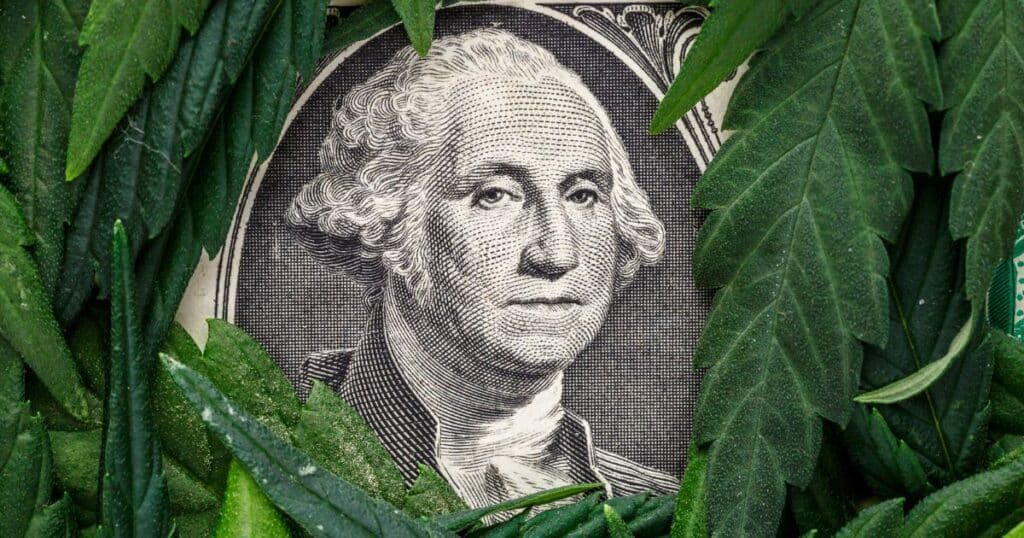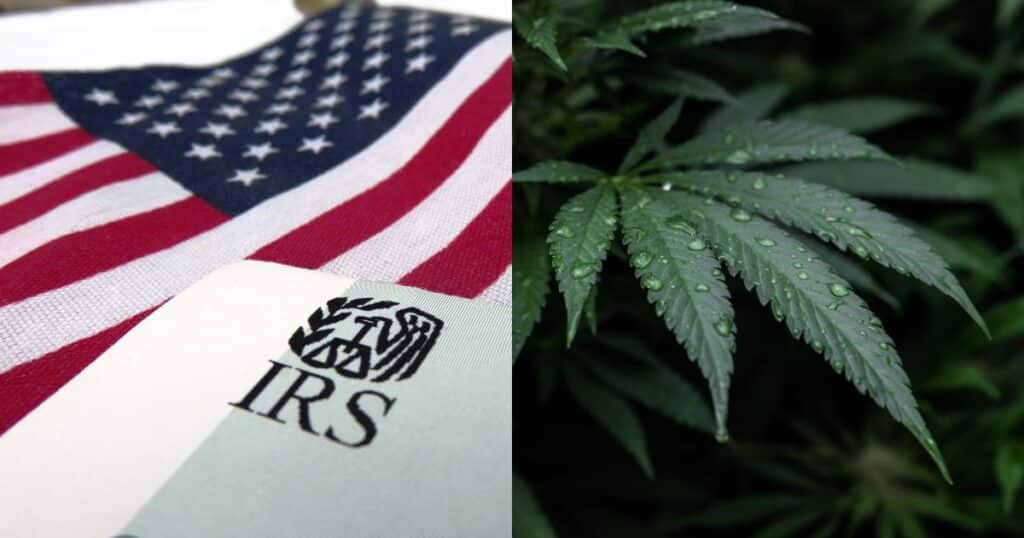The relationship between the federal government and the cannabis industry has always been strained, to say the least. A recent memo from the Internal Revenue Service (IRS) addressing cash transactions in the marijuana sector provides a glimmer of clarification in an otherwise murky legal landscape for cannabis entrepreneurs. The new guidance asserts a bold stance: cash moves in the marijuana trade should not be immediately flagged as ‘suspicious,’ marking a potential shift in the treatment of this multi-billion dollar industry.

The IRS memo offers a comprehensive guideline on how to manage cash payments within the marijuana business, reported first by Marijuana Moment.
Specifically, the agency’s focus is on Form 8300, a pivotal document that denotes cash payments exceeding $10,000. The use of the form by cannabis enterprises has been a point of contention, with the hindsight that such transactions could automatically trigger investigations due to marijuana’s federal prohibition.
The memo sheds light, stating that lawful cannabis businesses have the right to proceed with Form 8300 without inherently signaling a ‘suspicious’ transaction. It advises businesses on proper categorization, ensuring transparency without entangling cash flows in unwarranted red tape and scrutiny. This direction grants a semblance of financial normality to an industry that has long been sidelined by traditional banking and financial pathways.
It should be noted that the memo says, “This Chief Counsel Advice responds to your request for assistance. This advice may not be used or cited as precedent.”
The IRS’s guidance is a potential game-changer for an industry relentlessly shackled by unfriendly federal regulations. The Financial Crimes Enforcement Network (FinCEN) has historically placed a heavy burden on financial institutions dealing with marijuana-related ventures by imposing stringent rules on cash reports and ‘suspicious’ activity filings. However, this new IRS insight suggests that businesses in legal cannabis trade should not feel compelled to mark transactions as ‘suspicious’ merely due to the nature of their product.
This memo rejects the blanket association between cash flows in the cannabis sector and dubious activities. The significance of this stance extends beyond simple paperwork; it signals a shift in perspective, potentially paving the way for normalized financial operations in an industry desperate for banking reform.
Sheds a Light for Cannabis Businesses
The IRS’s guidance memo articulates a series of clear expectations and procedures for marijuana-related businesses dealing in cash transactions. It emphasizes proper protocol while filling out Form 8300, discouraging unnecessary labeling of transactions as ‘suspicious’ without valid cause. It also provides insights into categorization and best practices, acknowledging the intricacies of an industry that operates in a legal gray area.
Furthermore, the guidance addresses various hypothetical scenarios, ensuring clarity on reporting policies for transactions within and outside the supply chain. The detail-oriented approach of these guidelines empowers cannabis entrepreneurs to operate with confidence and clarity, navigating the complexities of federal tax compliance with more certainty.
“Scenario 1: Company A is marijuana manufacturer. Company A established a subsidiary, company B, as a distributor in charge of cannabis sales. Company A and company B are separate legal entities (different EINs). Company B gives cash to company A for the purchase of products to sell. Is a Form 8300 required?”
“Scenario 1 Answer: As the cash was received in the course of business and the entities are separate legal entities (have different EINs) then a Form 8300 is required to be filed by company A for the receipt of the cash from company B when it’s over $10,000.”
Implications for the Marijuana Industry
The IRS’s memo undeniably marks a step towards aligning federal policies with the progressive reality of state-legalized marijuana markets. By disentangling cash transactions from automatic suspicion, the new insights offer the marijuana industry a glimpse of a less encumbered financial future. Investors and entrepreneurs alike can now seemingly approach tax reporting with a more straightforward mindset, devoid of the inherent stigma that has plagued cash exchanges within the cannabis arena.
This development does not, however, mean a complete overhaul of the regulatory hurdles faced by cannabis businesses. The road to full financial integration is still fraught with challenges, and the broader issue of banking access for marijuana enterprises remains unaddressed. Nonetheless, the IRS’s memo is both a symbolic and practical victory for the industry, proving that federal agencies can adapt to the evolving legal landscape of marijuana.
Rep. Earl Blumenauer (D-OR) co-chair of the Congressional Cannabis Caucus, praised the IRS for “showing the leadership we need from federal agencies.”
“This is a small but consequential and common-sense step forward in how our tax system treats state-legal cannabis businesses,” the congressman told Marijuana Moment.

The path of cannabis finance, in light of this IRS guidance, seems cautiously optimistic. The broader impact of this decision is yet to unfold as it connects with other financial regulations and federal law enforcement. Nevertheless, the general vibe from the new IRS approach is one of recognizing and accommodating the importance of the legal cannabis industry.
Overall, the IRS’s memo is not just a procedural guideline for reporting cash transactions; it is a testament to the industry’s growing influence and the shifting tides of public and administrative perception. Whether this marks the beginning of a more inclusive and supportive federal approach toward the marijuana industry remains to be seen. But what is indisputable is that, with each piece of guidance, the federal government’s policies on cannabis are slowly setting a new precedent—one that promises a more equitable, transparent, and less punitive financial footing for the once-outlawed plant.


















